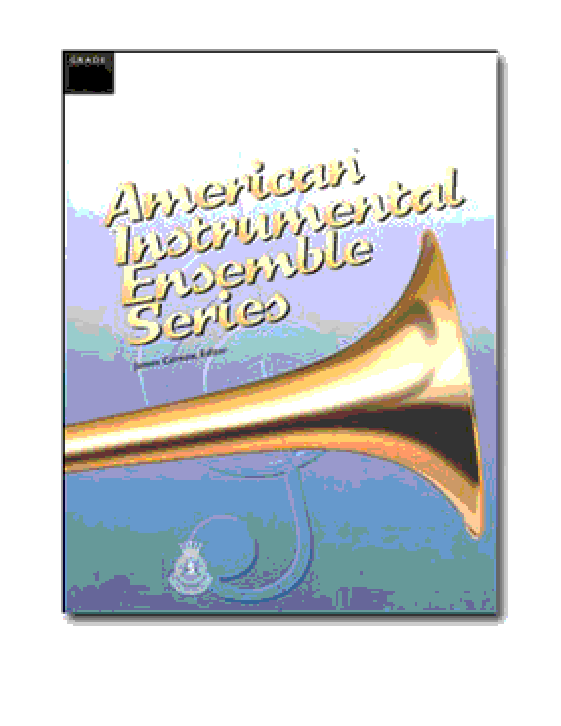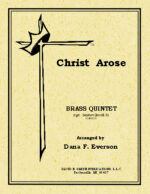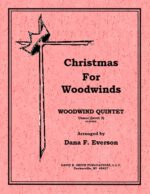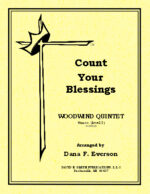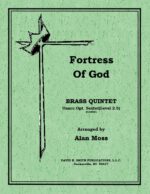| Instrument | |
|---|---|
| Level | 2 |
| Occasion | |
| Theme | Brethren, We Have Met Worship |
| Writer | |
| Publisher | |
| Copyright | 2004 |
| Comments | Holy Manna |
Brethren, We Have Met Worship
$24.95
Related products
-
Christ Arose
$12.00Scored for traditional brass quintet, an optional bartione part can be used to expand the piece to a sextet. After an opening upper brass fanfare, the lower parts present the theme in solemn fashion with further extended fanfares from the upper lines. The middle section reverses the stylistic assignments only to be given back to the opening styles. The with a powerful stacking of parts the piece concludes in a triumphant chord.
-
Spirit of God, Decend Upon My Heart
$10.00A standard brass quintet with optional trumpet for horn. The piece opens with a solo trumpet and gradually adds voices until it leads up to a modulation where the theme is now in the lower voices with gentle harmonic shifts. The upper voices respond with more motion until things are met with another modulation. This new section is more stayed until another modulation greets yet another modulation with the parts all intertwining amongst themselves and then… a solemn conclusion.
-
Christmas for WW
$9.00(std+ opt)(opt quartet) Joy To The World; God Rest Ye Merry Gentlmn; Angels We Have Heard On High; O Little Town Of Bethlehem
-
Guide Me, O Thou Great Jehovah
$9.00A woodwind quintet with opt. parts for Alto Sax and Bass Clar. This piece presents itself with a sense of joy throughout with the introduction itself in a motivic manner setting the tone. The melody is fragmented, passing the tune around to the various voices. The middle section mirrors the introduction in texture and again passes melodic material around the different voices. The final section is more subdued until it starts stacking the motifically structured parts until it ascends to a dramatic conclusion.
-
-
I Will Sing Of The Mercies
$9.00A woodwind quintet with opt. parts for Alto Sax and Bass Clar. This piece presents itself with a sense of joy throughout with the introduction itself in a motivic manner setting the tone The piece passes through several modulations where the upper voices carry the melodic material while the lower voices support the ensemble with strength. The writing of this arrangement is well crafted to take advantage of the “woodwind quintet sounds.” It continues that way right up to the very end with a declamatory statement of “Mercy.”
-
Count Your Blessings
$9.00Be ye thankful! Written for standard woodwind quintet with optional parts, this piece is highly decorated melodically and active rhythmically. It gives both the sense of majesty and joy.
-

